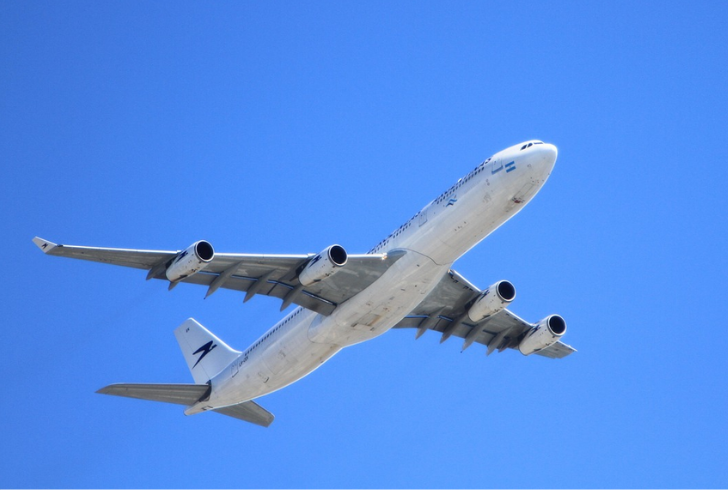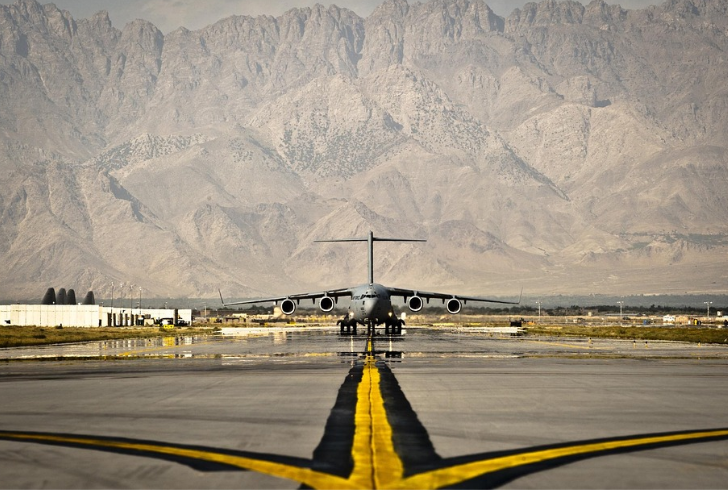If you’ve noticed planes roaring overhead louder than usual, you’re not imagining things. The recent cold snap gripping much of the country has created the perfect conditions for sound to travel differently.
As temperatures plunge, the dense winter air affects how sound waves move, making aircraft noise more pronounced than during warmer months.
How Cold Air Changes Sound Travel
Air temperature plays a key role in how sound travels. In warm air, molecules are spaced farther apart, allowing sound waves to dissipate more quickly. In contrast, cold air is denser, with tightly packed molecules that let sound waves move farther without losing much intensity.
“When the air is really cold, there’s very little room for water vapor, making it drier and denser,” explains meteorologist Brian James. “That density allows sound to carry more effectively, which is why a plane’s engine sounds much louder in cold weather.”

Essentially, when a jet passes overhead on a frigid day, less of the sound is absorbed or scattered, making it seem as if the noise is amplified.
Other Factors Making Planes Sound Louder
Aside from air density, a few other winter conditions can contribute to increased aircraft noise:
1. Lack of Vegetation – Trees and grass typically help absorb sound, but in winter, bare branches and snow-covered ground do little to muffle noise.
2. Stronger Winds – High-altitude wind patterns can carry sound waves further, sometimes making planes audible from greater distances.
3. Clear Skies – Cloud cover can sometimes trap noise close to the ground, but on clear, cold days, sound waves can travel unimpeded.
4. Altitude Differences – In some cases, planes may fly at slightly different altitudes due to weather conditions, affecting how noise is perceived on the ground.
Airports and Cold-Weather Noise Alerts
Airports have long been aware of how winter weather affects noise levels. In 2019, officials at Minneapolis-Saint Paul International Airport warned residents that aircraft might sound different due to extreme cold.
Acoustics expert Derek Anderson noted that colder temperatures could “cause airplanes to be heard in a different way,” emphasizing that sound carries differently in winter conditions.
Many major airports issue similar advisories during the winter months, informing nearby communities of potential changes in aircraft noise due to frigid weather. Understanding how sound travels in the cold allows airports and communities to better anticipate and manage noise concerns.
The Silver Lining

While colder air makes planes louder, it also enhances their performance. The higher air density in freezing temperatures provides better lift, allowing aircraft to take off with shorter runway distances. It also improves engine efficiency, helping planes climb to altitude faster.
According to aviation experts, cold weather can actually lead to smoother flights and more efficient fuel usage, making winter operations more effective despite the increased noise levels. Pilots and airlines often take advantage of these benefits when planning flight routes and fuel management.
A Cold Forecast Ahead
With frigid temperatures persisting across the Midwest, Great Plains, and Ohio Valley, it’s likely that planes will continue to sound louder than usual for a while. As temperatures begin to warm, sound waves will disperse more quickly again, reducing the noticeable roar of passing jets.
So, the next time you hear a plane sounding unusually loud, just remember—it’s not your ears playing tricks on you. It’s science at work in the winter sky.

